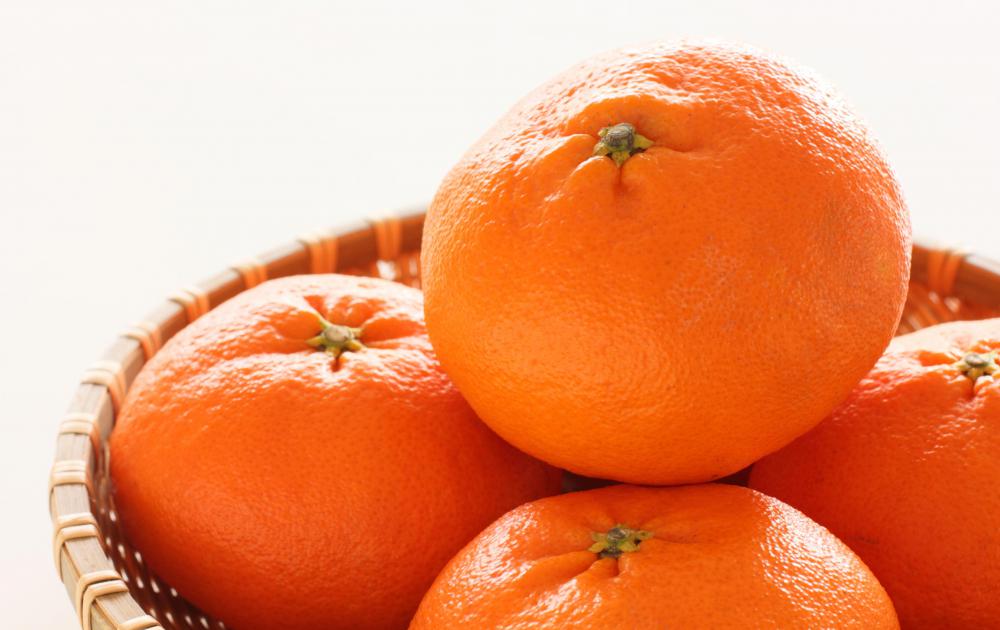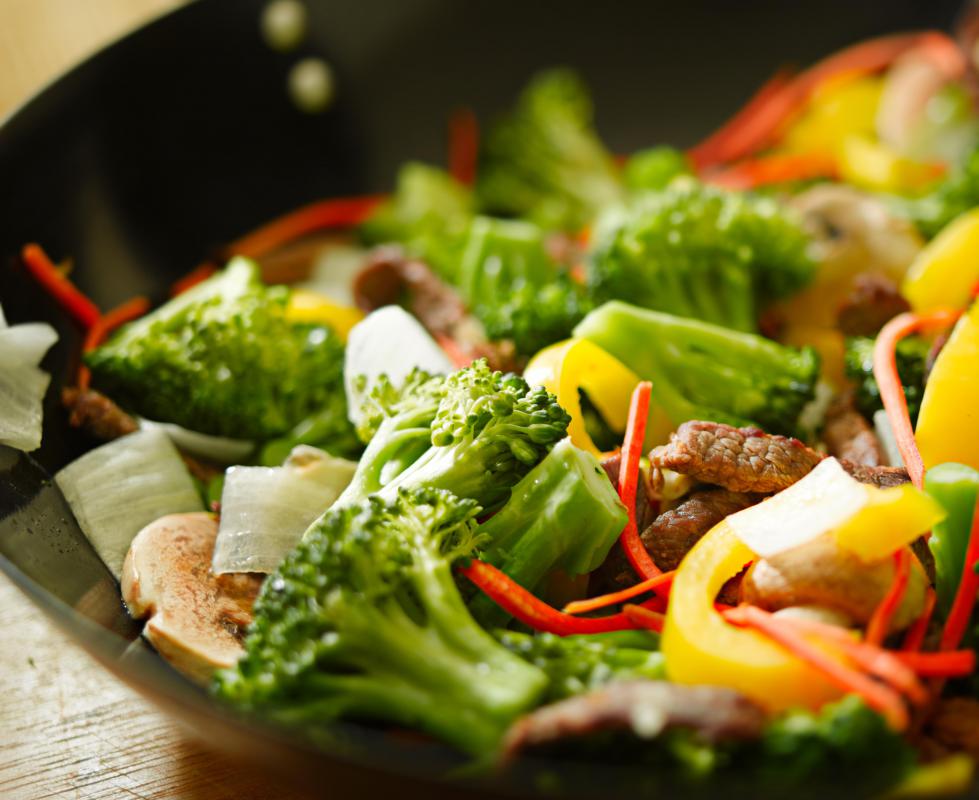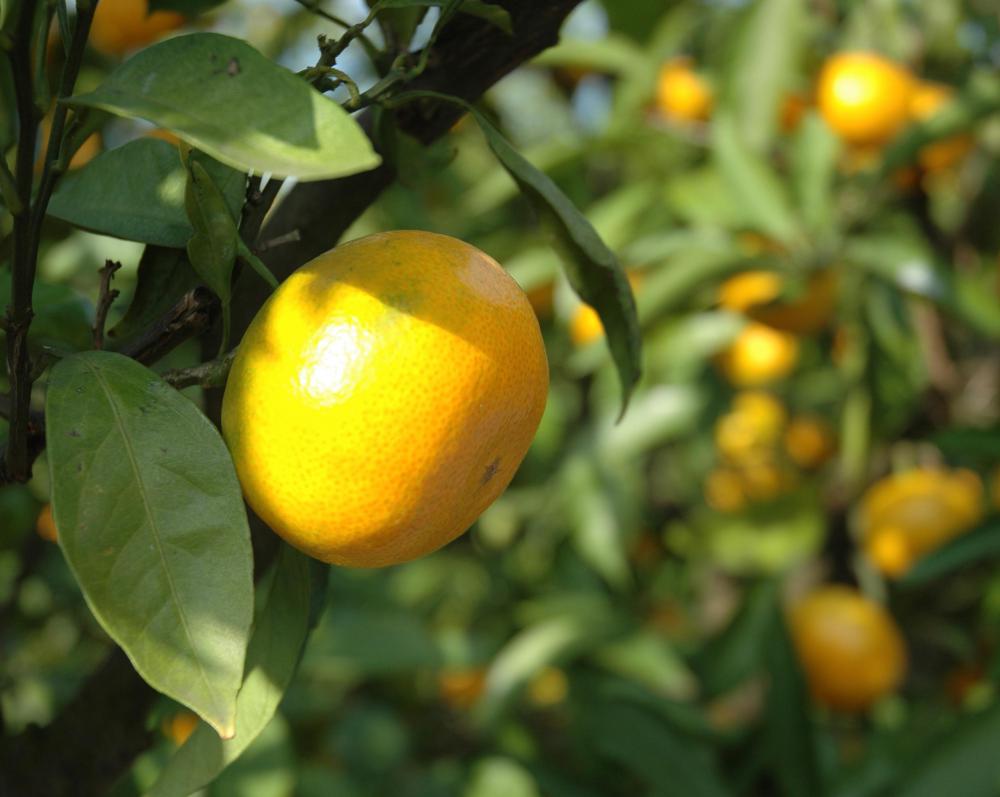At TheHealthBoard, we're committed to delivering accurate, trustworthy information. Our expert-authored content is rigorously fact-checked and sourced from credible authorities. Discover how we uphold the highest standards in providing you with reliable knowledge.
What is Ascorbic Acid?
Ascorbic acid is known for its antioxidant properties. It is a molecular bond of carbon, hydrogen, and oxygen. Most people are familiar with L-ascorbic acid, more commonly referred to as vitamin C.
When not in vitamin C form, ascorbic acid may be used in solutions to develop film. It oxidizes easily, but prevents the destruction of various cells - hence the term antioxidant. It must be stored in a cool dark place. It also oxidizes in the presence of metals, so it should not be stored in any type of metal container.

As vitamin C, ascorbic acid was once invaluable in preventing diseases like scurvy, caused by lengthy ship voyages. To combat scurvy, sailors and passengers were often given oranges, which are high in vitamin C. While most animals synthesize this acid naturally, humans and primates do not. For this reason, supplementation is required, generally available through food sources. Along with citrus fruits, broccoli, spinach, and cranberries are all excellent sources of ascorbic acid.

Since the discovery that ascorbic acid could prevent scurvy, modern natural food manufacturers have sought to market vitamin C in tablet form. Vitamin C is also a frequent addition to fruit juices. There has been much debate over the ability of vitamin C to prevent the common cold. While for years, natural foods manufacturers insisted that taking large amounts of vitamin C could actually shorten cold duration, the final result of clinical trials suggests that vitamin C reduces the cold by little more than half a day.

However, when vitamin C is combined with zinc, it has a tendency to reduce the number of days a cold lasts, largely due to the properties in zinc. Fortunately, vitamin C does not have a high rate of toxicity, even at very high doses. Therefore, while taking large doses may not improve one’s cold, it is also not likely to harm one in any way.
Ascorbic acid is essential to the body’s processes, and all humans must consume it through either food or supplementation. Vitamin C helps to produce collagen. It is also vital in the production of dopamine and adrenaline, and necessary to the function of almost all major organs.

Low levels of ascorbic acid can result in loose teeth, anemia, inability to heal quickly, and easier bruising. In general, though, people with fairly healthy diets get enough of this substance without supplementation. When a person's diet is low in vitamin C, supplementation should be considered to promote overall health.
Since most cooking methods deplete the content of vitamin C, one of the best methods for adding it to one’s diet is to eat citrus fruits raw, or to very lightly cook green vegetables like broccoli. Spinach salad is a tasty way to add more vitamin C to your diet. Vitamin C has recently been added not just to many foods, but also to many cosmetic products, particularly skin creams marketed as “anti-aging.” It is too early to tell if these products are effective, though some users feel they are quite beneficial.
AS FEATURED ON:
AS FEATURED ON:

















Discussion Comments
how does vitamin c helps in collagen production into body? what is the mechanism?
how many titratable protons are in ascorbic acid?
Vitamin C IS ascorbate acid. There is no natural vitamin C complex. Naturalists usually say that plants produce "natural" vitamin C however, animals make their own in the liver from glucose and that is the proof that bioflavonoids or similar are not part of the "vitamin C complex."
Why would a presence OF Ascorbic Acid in a urine specimen interfere with the urinalysis test? bilirubin and glucose?
Why do some fruits have a higher content of vitamin C than others?
I would like to know what is absorbic acid, as from my understanding it is not vitamin c this is just a marketing ploy - as its in fact a chemical compound which is man made. Its just chemical after chemical which is then marketed as vitamin c - but not actually!
Vitamin C occurs naturally in nature, in fresh fruit and vegetables, however we are told that vitamin c is absorbic acid? When its clearly not and by the way the higher the dose dose not mean better - as vitamin c is a water solb vitamin - so what we don't need get urinated out.
I am canning peaches. In the past I used fruit fresh. I have been informed that it is now discontinued. I was advised to use ascorbic acid. The person did not know about amounts. Do you have any information on this. thanks Diane
I am looking for a supplier of L- ascorbic acid. In the past I have used the brand Solgar which has now been discontinued in Canada. It would be too costly to import it from the United States, and I would be interested in finding a supplier in Toronto Ontario or some parts near in Canada. My name is [name removed by editor] and I can be reached at area code [phone number removed by editor] If long distance charges apply please call collect thank you
Post your comments